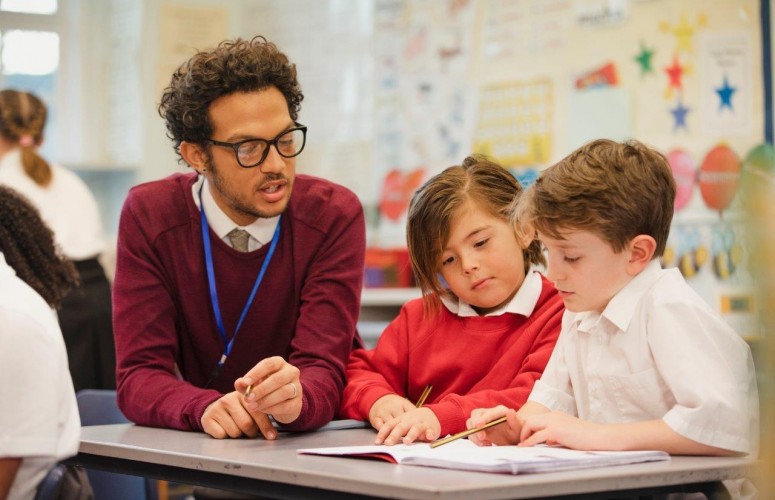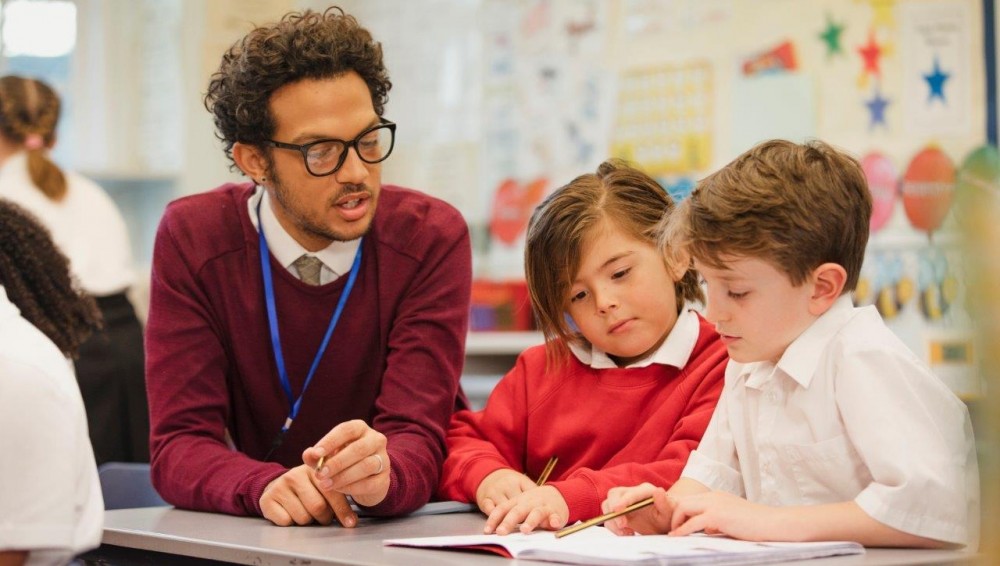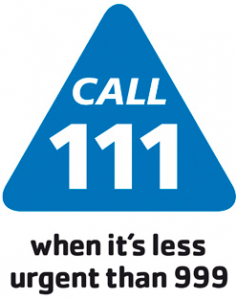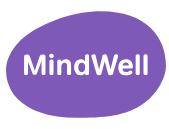Leeds Community Healthcare NHS Trust (LCH) places high priority on the safety of all children and adults at risk who are or whose parents or carers are in receipt of services. The Safeguarding Team ensure LCH meets its statutory requirements outlined in Working Together 2018, The Care Act 2014 and the Mental Capacity Act 2005.
The Safeguarding Team based at White Rose Office Park provides both corporate and operational functions and sits within the Quality and Professional Development directorate providing safeguarding advice, guidance, support, supervision and training for all LCH employees.
The team consists of Named and Designated Professionals, Lead Professionals, Safeguarding Advisors and Specialist Practitioners with responsibility for:
- Safeguarding Adults
- Mental Capacity, Deprivation of Liberty Safeguards and Dementia
- Prevent
- Safeguarding Children
- Specialist Child Protection Medical Services
- Sudden Unexpected Death in Infancy and Childhood
- Children Looked After and Care Leavers
The focus for 2020/21 has been to ensure Safeguarding has remained a priority during the COVID 19 pandemic, which has required us to review, develop and change the way we offer our service to keep our patients safe and free from abuse wherever possible. The team have continued to ensure high quality training, support and advice has been provided to staff and managers when required. Importantly, this has all been underpinned by ensuring the teams emotional and well-being needs have been met during this period of increased safeguarding activity where the team have been remote working and therefore have had less face-to-face peer support
Partnership Working
The team works closely with the designated and named professionals within community paediatrics, the Clinical Commissioning Group (CCG) and across other health care providers as well as colleagues in Social Care to ensure our work force have the skills and support they need to safeguard all those in our care. The Safeguarding Team is continually learning, improving and disseminating best practice.
Commitment
LCH has a responsibility to prevent and stop all forms of abuse or neglect happening wherever possible and to keep vulnerable adults safe, meeting statutory obligations and our duty of care. LCH safeguarding team focuses on creating an environment where abuse is not tolerated, and safeguarding is everybody’s business.
Safeguarding Adults
A key priority for LCH is to raise awareness and empower staff to recognise the signs and symptoms of abuse. The Team want all staff to feel informed and confident to access the team for support and advice. The Safeguarding Adult Team does this by continuing to provide advice, training, and support to staff, in line with our statutory duties. We recognise that there are many different platforms for learning and always incorporate different techniques to help facilitate learning.
Key achievements 2020-2021
- Maintained a full safeguarding service during COVID 19 (Remotely) Prior to COVID the team provided telephone advice and support which hasn’t changed. We also provided face to face training which is now accessed via MSTeams, the numbers of staff members accessing training via this method has actually increased and feedback is good.
- Proactively continued to raise awareness of the principles of “Talk to Me, Hear My Voice” and “Think Family Work Family”.
- Self -Neglect Policy published following Partnership working with LSAB.
- Worked in partnership with Safer Leeds to facilitate Routine Enquiry and Coercive Control, Risk and MARAC training.
- Creation and facilitation of Level 3 Safeguarding Training currently maintaining an upward trajectory projecting full compliance by August 2021.
Key ambitions 2021-2022
- Work in partnership with LSAB and partners to raise awareness of the city-wide Self-Neglect policy.
- Work in partnership with the LSAB to develop and embed an exceptional risk forum for Self-Neglect (SN) which will add another layer of support for staff working with SN as well as another layer of protection for the citizens of Leeds
- Work in partnership with LSAB and our Health Economy partners to participate in the Citizen Practice Audit.
- Work in partnership with our Health Economy partners to raise awareness of the Domestic Abuse Bill April 2021
- Launch of LCH Domestic Violence/Abuse Policy and Guidance on Supporting Affected Employees.
- Joint working within the Safeguarding Team and Safer Stronger Communities (previously known as Safer Leeds.) to obtain the Domestic Abuse Quality Mark (above policy is one aspect of the quality mark).
- Launch of Domestic Abuse Champion role within LCH (another aspect of the DV quality mark).
Prevent
Prevent is one strand of the Government’s counter terrorism strategy known as CONTEST. The Prevent strategy aims to stop people becoming terrorists or supporting terrorism. Prevent addresses all forms of terrorism but prioritises those according to the threat they pose to our national security. Prevent is delivered in partnership by a wide range of organisations including Health. Together we recognise that the best long-term solution to preventing terrorism is to stop people been drawn into terrorist behaviour in the first place.
Key achievements 2020-21:
- Maintained a full service during COVID 19 (Remotely)
- Maintained involvement in local and regional forums to ensure LCH is informed of and engaged in continual practice development. Successful transition from a local e-learning to the national e-learning package Maintenance of training compliance more than the NHS England target
Key ambition 2021-22:
- Develop a webpage on My LCH to support staff in fulfilling their Prevent duty.
- Continue to raise the profile of Prevent across the organisation.
Mental Capacity Act (MCA), Deprivation of Liberty Safeguards (DoLS) and Dementia
Everyone working in health and social care who makes decisions for people who lack capacity has a legal responsibility to know and follow the MCA (2005). LCH has a statutory duty to ensure its staff comply with the legislations on consent and MCA (2005), to ensure the care and treatment delivered is lawful and best practice.
Key achievements 2020-21:
- The 3Ds Clinical Frameworks was submitted to NICE
- Involvement in city-wide campaign to increase awareness and use of Lasting Powers of Attorneys (LPAs) including trust wide briefings.
- Enhanced mechanisms in place for DoLS reporting within inpatient settings.
- Developed Electronic Patient Record (EPR) template to capture consent/MCA for children and young people.
- Dementia training compliance: 96% for trust wide awareness training, 83% for tier 2 full day training.
Key ambition 2020-21:
- Full implementation of EPR template to capture and audit consent/MCA for children and young people.
- Readiness for implementation of MCA amendment bill of Liberty Protection Safeguards (LPS) legislation (pending on government guidance release).
- Implementation of Dementia Template within EPR to enhance care planning and transitions
- Conclude Delirium pilot within LCH contributing to the regional delirium work stream with NHS England and the Yorkshire & Humber Clinical Network.
Safeguarding Children
Key achievements: 2020-2021
- Throughout the pandemic the childrens safeguarding team moved to mainly working from home using virtual platforms for communication. They maintained a proactive and supportive approach to LCH services and to the wider Leeds partnerships.
- In collaboration with other members of the Leeds health economy, the childrens safeguarding team contributed to the development of an overarching “Voice of the Child” guidance.
- One of the Childrens Safeguarding Advisors continues to facilitate training via the Leeds Safeguarding Children Partnership (LSCP) and the LCH Named Dr for Safeguarding Children facilitated Child Protection (CP) medical briefings to Multi-agency professional also via the LSCP
- The Children’s Safeguarding team have contributed to and raise awareness of various Safeguarding calendar events throughout 2020-2021, such as “16 days of action” White Ribbon day. Raising awareness of Child Criminal Exploitation & taking part in city wide Safeguarding Awareness week.
Key ambitions 2021- 2022:
- Work with the resetting of LCH services, whilst maintaining an accessible safeguarding service.
- Work with LCH services implement any Safeguarding Learning Lessons identified internally and externally from Leeds Safeguarding Children Partnership.
- Establish “Voice of the Child” within the trust Record Keeping Audit tool. Look at IT templates that clearly support capturing the Voice of the Child.
- Continue the support of the FDSH with statutory strategy discussions and assist with implementation of the proposed new DRAMM model within the MARAC service arrangements.
- Embed the Domestic Violence Champions meetings within the trust.
Specialist Child Protection Medical Services (SCPMS)
Key achievements 2020-21:
- Significantly improved the working relationships with acute paediatricians in LTHT
- Instrumental in changing the ethos of children being admitted from Accident &Emergency with child protection concerns, ensuring there is a clear Standard Operating Procedure (SOP) to ensure children continue to be protected from harm without acquiring infections. Now having commissioning conversations about this change to service.
- Strengthened relationships with sexual health and Genito-Urinary medicine doctors
- Involvement with the Risk and Vulnerability Subgroup of Leeds Safeguarding Children Partnership regarding child victims of Female Genital Mutilation.
- Attendance at Multi-agency Safeguarding Operational Group (MASOG) by Named doctor to look at operational processes for community paediatrics, police and social care
- Named Dr - Delivered training to a range of professionals – social work, education, police and health including General Practitioners, also the front door safeguarding hub team.
- A change in psychologist group supervision for the Specialist Childrens Medical Protection Service, this hasn’t yet been started but looking forward to this.
Key ambitions 2021-22:
- Continue to work with the LTHT and deliver Childrens Medical Protection Service from an appropriate venue and all children who are medically well do not get admitted and are seen for CP medicals by us. We are continuing to explore whether re locating back to the LGI is the right approach.
- Develop and implement clinical pathways in partnership with MHL for children with Sexually Transmitted Infections including e.g. ano-genital warts
- Continue to engage in regional peer review and Named Doctor regional meetings
- Continue to learn from patient experiences – giving particular attention to the voice of the child by improving child friendly feedback collection processes, this is being explored but no decision yet.
- Engage with psychological support for staff when it is available.
- Produce training that can be accessed remotely, some of the training I deliver has photos in and I need to obtain appropriate images to add to the presentation.
Sudden Unexpected Death in Infancy and Childhood (SUDIC)
‘The death of a child is a devastating loss that profoundly affects all those involved. The process of systematically reviewing the deaths of children is grounded in respect for the rights of children and their families, with the intention of learning what happened and why, and preventing future child deaths’ (Chapter 5, Working Together (WT), 2018)
Key achievements 2020-21:
- LCH SUDIC Team consistently met the key performance indicators
- Facilitation of a multi-agency study day on: Cot Death and how we can Influence Change
- Effective contributions to the local Child Death Overview Process and LCH Mortality Sub-Group
- Witnessing changes made as a result of SUDIC and CDOP work
- Provided a full and robust service throughout COVID-19
- Evidence of strong multi-agency ways of working to facilitate the SUDIC process
- LCH now provide safe sleep advice to fathers going on paternity leave
Key ambition 2020-21
- To maintain, and aim to exceed, the current high standards of facilitating the
- SUDIC process in Leeds by; ensuring we have the right people, with the
- necessary skills, knowledge and ability in the right place at the right time.
- Implement new ways of working to streamline processes
- Develop in partnership with LSCP SUDIC Training Package
- Share SUDIC practice with teams across boundaries
Children Looked After (CLA) and Care Leavers
A child is legally defined as ‘Looked After’ by a local authority if he or she:
- is accommodated by the local authority for a continuous period of more than 24 hours,
- is subject to a Care Order to put the child into the care of the local authority (including secure settings),
- is subject to a Placement Order (child placed for adoption)
- is an unaccompanied asylum seeker and under the age of 18.
Key Achievements 2019/20
- Continued delivery of the service during the Covid Pandemic, with audit indicating high standard of health assessments.
- Significant input into the Corporate Parenting Strategy 2021-25, with aspirational targets in place for social care which will improve both quality and timeliness of Initial Health Assessments.
- Designated Nurse input into Local Authority commissioning groups; thematic review of Independent Foster Agency and Children’s Social Care External Residential Board.
Key Ambitions 2021-22
- To work with our social care colleagues to improve Health’s ability to provide the Initial Health Needs Assessment (IHNA) to inform the planning at the first childcare review, 20 working days after the child is taken into care, as per statutory requirements.
- To work with Health Colleagues in the trust to raise the profile of looked After Children and Care Leavers and to start conversations about how we work together to reduce the lifelong health inequalities they experience and implement the new NICE guidance which is due to be published later this year.
- To provide training for GP’s regarding unaccompanied asylum seeker health needs and safeguarding concerns.
- Ensure clear pathway of support available for Looked After children moving to adult services.
- To complete work around business reporting to ensure we are collecting data that monitors service quality and promotes service improvement, whilst holding the needs of looked after children and care leavers at the core.




